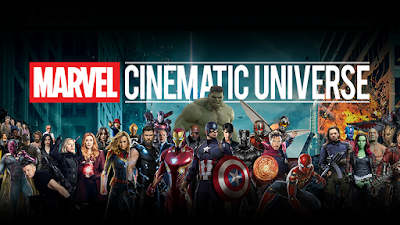How The Disney/Fox Merger Could Define Entertainment
The deal is done! After over a year since it was first
announced, The Walt Disney Company has now officially completed its acquisition
of 21st Century Fox’s entertainment assets for $71.2bn. The deal, completed at
12:02pm EST on 20/03/19, means that Disney now own a plethora of Fox’s entertainment
businesses, including (but not limited to) Twentieth Century Fox Film and
Television, Fox Searchlight Pictures, FX, National Geographic, Star India, and
much, much more. As the biggest deal of its kind in history, the merger will
have huge implications on the wider entertainment industry, and puts Disney in
an extremely favourable position for the years and decades to come.
Now the deal is complete, speculation can truly begin as to
how Disney will utilise all the businesses and amazing IP they have just acquired.
Fox is one of the major Hollywood studios, and I’ve been worried (and still am)
that the merger will mean less (or no) films from Fox proper, as their studios
slowly integrate with Disney’s wider film division. Although Fox has some
amazing IP (The Simpsons, Alien, Avatar, X-Men, etc), not all of it fits well
with Disney’s family friendly brand, which causes concern to film fans like me
whether we’ll see new content being produced from certain franchises. I guess
the best part of the deal (and the one which has had all the attention) is that
X-Men and Fantastic Four franchises are returning home to Marvel, and so we could
soon be seeing Wolverine, Dr Doom, and Co entering the MCU!
For me though, this deal is much more than expanding the MCU.
For me, this deal WILL shape Disney’s future, the entertainment landscape, and
secure Bob Iger’s legacy as one of the greatest business leaders of his
generation. From streaming to creative potential, here are some of the ways I
believe this deal will define Disney and entertainment as a whole:
·
Streaming/OTT Video – with Netflix and Amazon Prime already
established, and Apple, Warner Media (and more) all vying for space in the streaming
market, Disney now has an advantage over its rivals. With Fox’s film and TV
catalogues, along with their hugely popular IP, Disney will certainly make a
very powerful entry into the streaming market when it launches its Disney+
service later in 2019. Customers will immediately have an enormous array of
popular content to choose from, which should drive subscriptions giving the
service a successful launch. Fox’s more mature content could sit on Hulu (which
Disney now own 60% of), allowing the company to gain even more market share.
·
Complimenting Disney’s Existing Business –
put simply, acquiring Fox’s assets is going to make Disney a ton of money.
Disney will be able to integrate their newly owned IP with their theme parks,
resorts, toys and wider consumer products, not to mention a stronger foothold
in the TV space.
·
Competition – the merger means Disney can
compete with its rivals for the consumer dollar. As tech firms look to enter
the media landscape, the likes of Amazon, Facebook, Apple, etc pose a huge
threat to traditional studios like Disney. With deep pockets, these firms have
enough resources to mount a serious threat, but acquiring Fox means Disney can
consolidate its position as a major player in the market. Disney is in a great
position in that it already has the content to compete, and this is a bitter
pill to swallow for its rivals – so much content under one roof could make it
harder for rivals to compete. As a consumer, we want more (better quality)
content to choose from, and this merger could have the opposing effect.
·
International Expansion – now more than
ever, gaining a strong foot-hold in international markets is likely to serve
firms well in the long run. With China overtaking North America as the largest
box office market, it’s clear how important international markets are to film
studios. With Star India, Disney now has the opportunity to cement itself in
the world’s second most populous country, India. The Star network/brand is one
of the biggest media entities in Asia, and gives Disney a major foothold to
expand its international offerings, an area which could be said the company has
been lacking in.
The trend of “consolidation” will likely continue. Just like this deal, and AT&T’s acquisition of Time Warner, mergers will give companies the assurance they can compete in the long-run. As a consumer, I’m eager to see the exciting possibilities play out, but I’m also worried of the damage this could do to smaller studios. It’s becoming more and more difficult to find your feet in the entertainment industry, and firms with less resources could get swamped by their larger rivals. Disney acquiring Fox is exciting from a creative and financial point of view, but the lasting damage the deal could bring to independent studios should be of concern to everyone involved. If it were my choice, I would have stopped the deal – Disney is already in a strong position, whilst I still want Fox to produce extraordinary content (would we have ever gotten Deadpool and Logan under Disney’s umbrella…NO). But the deal is done, and now it’s up to Disney to prove me wrong. The future of Disney and the entertainment industry has never been more exciting, and only time will tell how good (or bad) this will be for consumers and competition.





Comments
Post a Comment